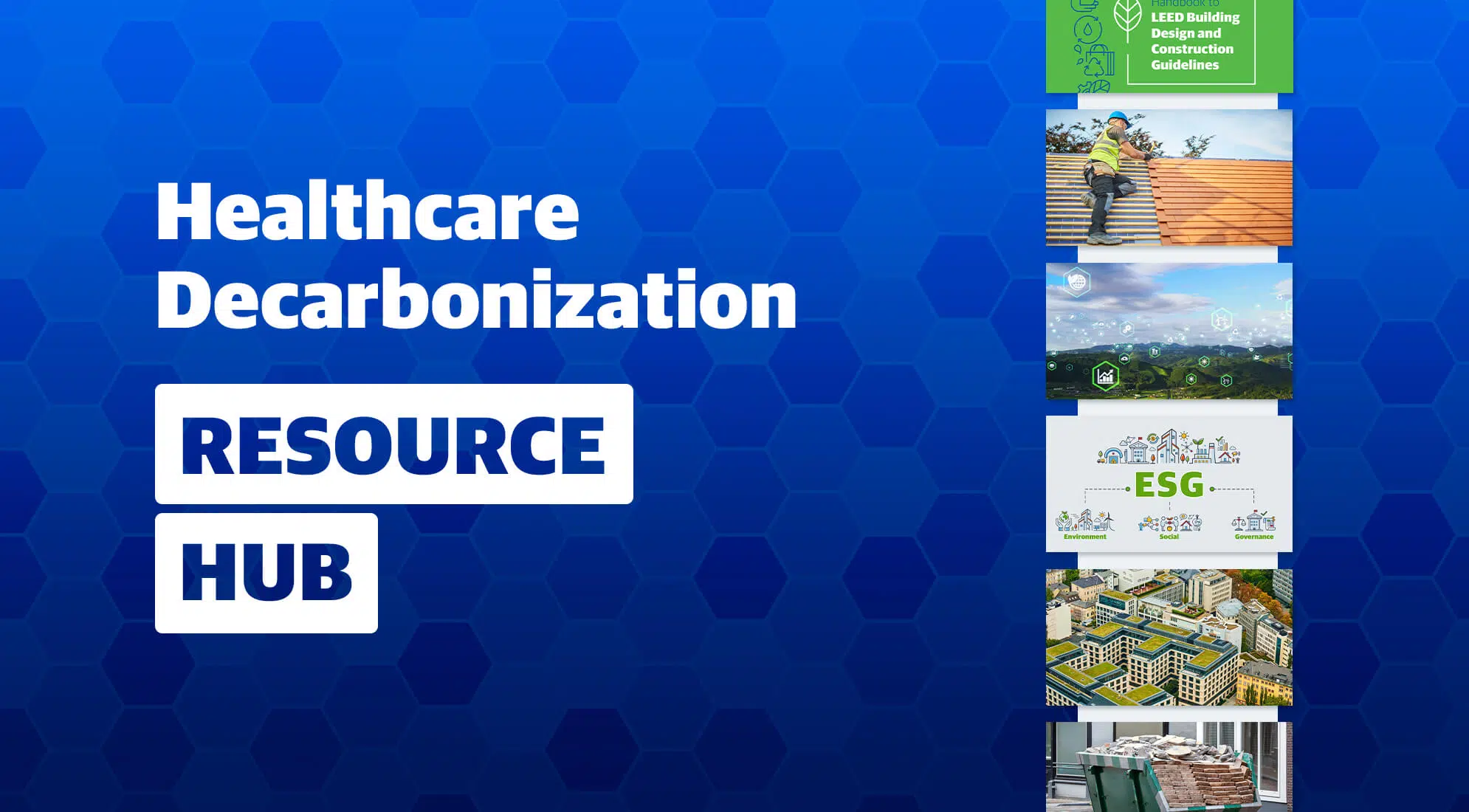There’s one subject on the mind of healthcare facilities leaders across the United States. That subject is decarbonization.
The hottest topic in the industry, decarbonization and its sister subject, sustainability, came up repeatedly at the ASHE PDC Summit and the ASHE Annual Conference. They’ve also received scores of attention from major industry publications. There’s good reason for such wide-ranging conversation. Decarbonization measures, sustainability efforts and green energy initiatives represent a paradigm shift for the industry and have the potential to fundamentally transform hospital operations.
Given the implications for healthcare facilities, we are lending our voice to this all-important conversation and covering a variety of issues surrounding decarbonization and sustainability. We’ll identify decarbonization challenges, consider what changes are realistic for healthcare facilities, dig into financial opportunities related to energy efficiency and outline what hospital leaders will need to do before they develop and implement a decarbonization strategy. Lastly, we’ll discuss the opportunities available to hospitals to get started today and how Gordian can assist you in achieving your sustainability and decarbonization goals.
Let’s start with the basics.
What is Decarbonization?
Decarbonization refers to reducing CO2 emissions resulting from human activity, with the eventual goal of reaching zero net CO2 emissions. In practice, getting to zero net emissions requires shifting from fossil fuels to low-carbon energy sources, such as solar energy or hydropower.
Why Is the Healthcare Industry Discussing Decarbonization?
The U.S. healthcare sector is responsible for 8.5% of carbon emissions in the United States. These emissions are a direct result of facilities operations and the healthcare goods and services supply chain, and an indirect result of purchased sources of energy, heating and cooling. About 84% of the healthcare industry emissions are the result of burning fossil fuels for HVAC systems and operating equipment.
Because the healthcare industry accounts for such a sizeable portion of U.S. carbon emissions, leaders are under intense scrutiny and looking at their responsibility to combat climate change.
“Decarbonization is the new face of a movement that has been going on in the healthcare sector for a long time: sustainability.” – Kathleen Fink, Energy Manager, Penn Medicine
When Did Healthcare’s Decarbonization Conversation Begin?
The 2022 ASHE Annual Conference featured a panel discussion on decarbonization. Sitting on the panel was Kathleen Fink, Energy Manager of Penn Medicine, who shed some light on the history of decarbonization in healthcare.
“Decarbonization is a relatively new goal in a challenge the healthcare industry has been tackling for the last 10 years, sustainability,” Fink explained. “This is actually a conversation we’ve been having for a long time, from when we first decided to switch out iridescent lights for LEDs.”
It’s worthy to note that sustainability and decarbonization aren’t just about going green for the sake of going green. There are financial incentives for hospitals to lower their carbon footprint. A study published by The Commonwealth Fund, a foundation dedicated to promoting a high-performing healthcare system that achieves better access, improved quality and greater efficiency, found that reducing energy use and waste could save the healthcare sector $15 Billion over 10 years.
The Federal Government’s Role in Healthcare Decarbonization
The Biden Administration, along with the Department of Health and Human Services, issued a call to action for the healthcare sector to mobilize on reducing emissions in April of 2022. The establishment of the Office of Climate Change and Health Equity (OCCHE) has demonstrated the federal government’s commitment to addressing this issue and to taking a more active role in this endeavor. Industry leaders have responded.
61 of the largest U.S. hospitals responded to the Administration’s Health Sector Climate Pledge, committing to reduce greenhouse gas emissions by 50% in 2030 with an end goal of net zero emissions by 2050.
To again quote Fink during the ASHE annual conference, “This [Decarbonization] is either something that is going to be assigned to you, or you can take the lead on.”
Next Up: Decarbonization Challenges
Now that we have a better understanding of healthcare’s decarbonization and sustainability efforts, we can begin to look at the challenges of implementing these practices in your hospital. It’s great to have lofty goals around helping both the environment and your hospital’s budget, but it’s important for us to be realistic about the difficulties inherent in executing these countermeasures. We will address that next in our special series on decarbonization.







